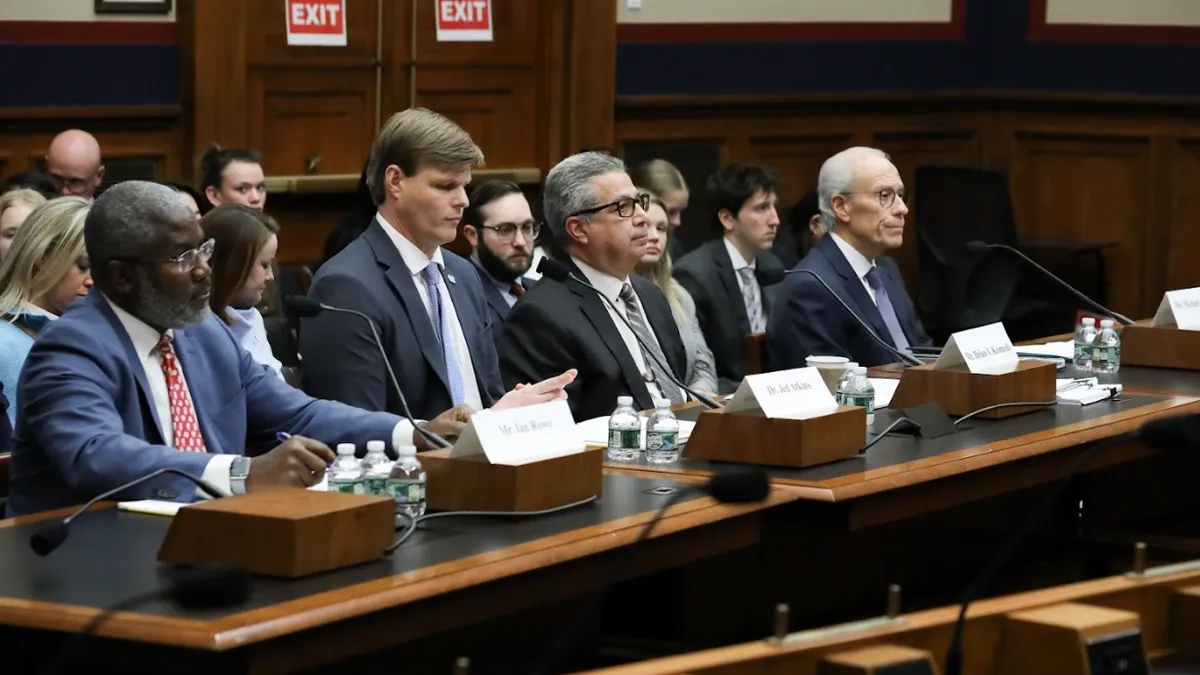Improving student academic achievement — particularly in reading, math and civics — is vital, lawmakers on both sides of that aisle agreed Wednesday at a House subcommittee hearing. However, they mostly differed on the approaches and priorities for making this happen.
Lessons emphasizing race, gender and what some Republican House Subcommittee on Early Childhood, Elementary, and Secondary Education members called “divisive ideologies” are dividing communities and distracting students from learning core content.
"Schools are substituting the traditional narrative of this great but flawed nation with a political story built on racial resentment and collective guilt," said subcommittee Chair Aaron Bean, R-Fla. "It's educational malpractice to teach a generation of children to feel ashamed of who they are or see themselves as victims without hope or change."
Democrats, on the other hand, placed blame for lackluster student achievement on aging and underfunded school facilities, as well as a need for more federal funding for special education, high-poverty schools and other areas.
"School infrastructure is not just about walls and ceilings of school buildings," said subcommittee Ranking Member Suzanne Bonamici, D-Ore, calling for more federal investment in school facilities. "It's about the entire environment in which our children learn. And right now, far too many of these environments are unsafe, outdated and desperately in need of repair."
In a point of agreement, both Republicans and Democrats said Congress and the rest of the federal government should not control lessons taught in schools.
"This is supposed to be a hearing about K-12 curriculum but we are not a school board," Bonamici said of the hearing entitled “Back to Basics: America’s Founding, Civics, and Self-Government in K-12 Curricula.”
Dispute over critical race theory
Several GOP lawmakers said schools are teaching concepts of critical race theory, an academic construct that considers racial bias to be embedded in society, including in policies and the criminal justice system.
"We continue to hear stories of how and where CRT has been incorporated into government school curriculums, blaming everything on race, looking at everything through a racial lens, determined to divide students and individuals based on race," said Rep. Bob Good, R-Va.
But Democrats disputed that. "It is just not taught or discussed at the K-12 level," said Rep. Jahana Hayes, D-Conn., a former history teacher.
Subcommittee members and panelists also discussed ways to teach a full and accurate accounting of American history.
Panelist Ian Rowe, a senior fellow at the American Enterprise Institute, a conservative-leaning think tank, called for an honest telling of U.S. history. "In order to achieve civic pride, we must have the confidence to tell the totality of American history in K-12 schools, warts and all," Rowe said.
Rowe explained how the Woodson Center, a nonprofit that supports community-based leaders to help low-income communities and where Rowe is a senior visiting fellow, recommends the 1921 Tulsa Massacre in Oklahoma be taught. First, he said, the context should be given that the area attacked was known as "Black Wall Street" for its affluence and successful businesses despite Jim Crow segregation laws.
Then lessons should focus on the massacre "in all of its horror" and not be "sugarcoated," Rowe said. The final lesson should be about the rebuilding of Tulsa, he said.
Hayes said she agreed with Rowe regarding the teaching about the successes of Black entrepreneurs in Tulsa in the early 1900s. But she added, "We cannot do that while ignoring the conditions that made that race riot happen."
Lawmakers and panelists also discussed the need to support teachers with high quality curricula materials.
Civics teachers lack resources and content-based training, said Michael Weiser, chair of the Jack Miller Center, a nonprofit network of scholars and teachers who support education about America’s founding principles and history.
"We need to work together to find solutions for this crisis of confidence. We need to support civics teachers in any way we can, so they can teach students to grow into their roles as young citizens who take responsibility for self-government," Weiser said.







 Dive Awards
Dive Awards





